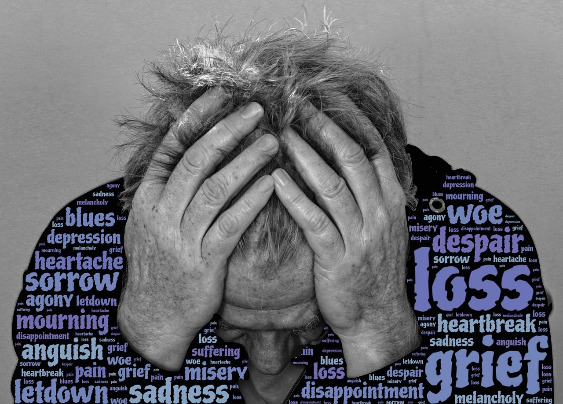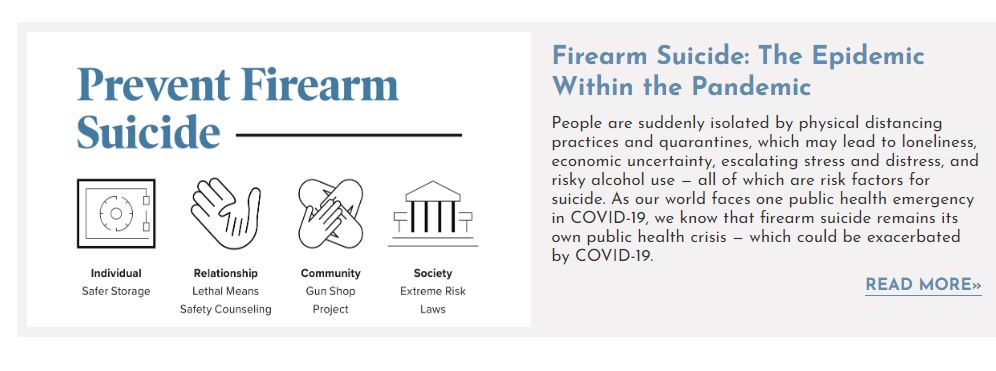 Ohio Coalition Against Gun Violence Ohio Coalition Against Gun Violence The impact of COVID-19-related gun violence is expected to be felt long after the pandemic ends, causing lasting mental and physical anguish.  Experts believe there will be significant lasting effects stemming from the relationship between the pandemic and gun violence. Some equate these expected effects to post-traumatic stress disorder (PTSD). The Ohio Coalition Against Gun Violence explores some of the societal issues that may see an increase in PTSD or suicide by gun months after COVID-19 is over. Suicide Mental health professionals indicate concern that the risk of suicide stemming from COVID-19 may continue long after the pandemic ends. Mental and public health specialists caution Americans, both those suffering with mental health issues as well as their loved ones, to find help and coping mechanisms where they can – and to do so now.  Source: The Educational Fund to Stop Gun Violence An NPR article states “… a rise in suicide often happens in the months after the immediate physical dangers of the disaster have passed.” Gun Violence and Children Children continue to be the victims of gun violence, including accidental shootings. Sadly, the numbers of children injured or killed by guns is often reported in the news. In late May, two Columbus, Ohio teenagers were shot – one a victim of a drive-by shooting as she was at home, the other was shot during an argument in a car. Thankfully, both teens survived – but an 8-year-old young boy from Cincinnati who loved to play football did not. Chance was the innocent victim of a shooting in mid-May, killed in the parking lot of an apartment building. In Florida, the police chief of Miami pleaded with gun owners to “be mindful of weapons in the house and how kids are home” after the death of two teen age girls in the city from accidental shootings in their homes in less than six days. The National Center for Healthy Safe Children states there are some lasting effects children face after a traumatic experience such as gun violence and these can include problems with social and emotional functioning, cognitive problems, poor performance in school, and more. Domestic Violence Similarly, there is concern of ongoing emotional and physical trauma as a result of domestic abuse long after the pandemic is over. A recent editorial in USA Today about domestic abuse stated “Coronavirus is a terrifying illness: It could leave millions of survivors with PTSD.” The American Psychological Association reports that in addition to possible injury or death, there is a higher risk for long-lasting adverse outcomes from domestic violence in the home during COVID-19. These can include chronic disease, depression, PTSD and more. How Academia and Health Professionals are Making a Difference ... Professionals at major health, research and academic systems across the country, including at The Ohio State University’s Wexner Medical Center, are exploring how to engage pediatric, general and family practitioners, and other health professionals in gun violence prevention. Some current studies and/or position statements across the country include: Don’t bear the burden of domestic violence or suicidal thoughts alone. Help is available: National Suicide Prevention Lifeline 1-800-273-8255 Ohio Domestic Violence Network Search online by zip code for help or call 1-800-934-9840 National Domestic Abuse Hotline 1-800-799-7233 Ohio Coalition Against Gun Violence |